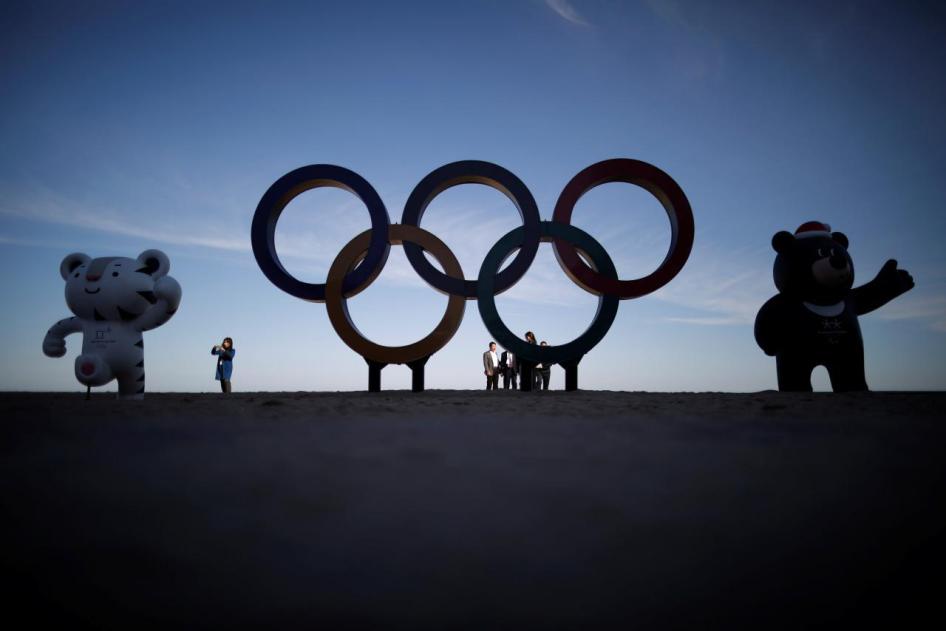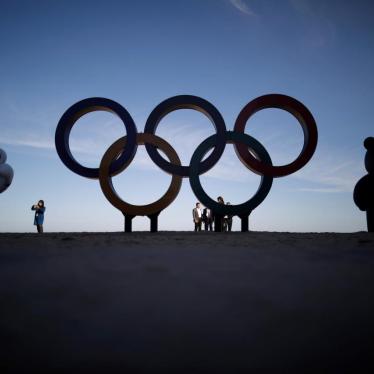Shortly after he seized power in a 1979 military coup, South Korean Gen. Chun Doo-hwan realized how he could gain the international legitimacy and popularity he craved while showcasing the country’s growing economic force: by hosting the 1988 Olympics. After all, hosting the Tokyo Olympics in 1964 helped Japan mark the end of its post-World War II isolation and kicked off a period of rapid economic growth.
For former president Chun, it didn’t work out the way he expected. Instead of consolidating his repressive rule with the help of the Olympics, he faced massive protests by South Korean students, workers, democracy activists and others who took to the streets of Seoul in 1987, using the international spotlight brought by the Olympics to demand domestic reforms.
The prospect of a bloody crackdown that could have canceled the Olympics led to international pressure for Chun to permit democratic elections. Those presidential elections, which took place in December 1987, launched South Korea into its democratic era, ending decades of military rule.
Thirty years later, South Koreans once again took to the streets, calling for President Park Geun-hye to step down. The “candlelight revolution” was triggered by allegations of corruption involving individuals and donations from chaebols, large business conglomerates with great political influence. A combination of frustration and anger infused the protesters’ calls for an end to corruption; demands for greater freedom of speech, government and corporate accountability; and respect for workers’ rights. Park was removed from office last March.
South Korea’s new president and the host of the PyeongChang Winter Olympics is a human rights lawyer, Moon Jae-in. A former student activist, Moon is uniquely positioned to take up human rights as a central platform of his administration, and he can use the leverage of the Olympics to get the ball rolling.
With the end of the military dictatorship, South Korea rapidly established itself as an open society with an active but sometimes sharply polarized discussion of human rights. There are frequent public protests, including the ones that toppled the Park government, and big hopes for change from groups working on a range of both national and international human rights problems — from North Korea to workers’ rights to LGBT issues and women’s rights.
The PyeongChang Olympics, which run from Feb. 9 to Feb. 25, provide Moon’s government with a chance to take action on a number of long-standing human rights concerns, such as halting discrimination against women and vulnerable groups, including refugees and migrant workers, and releasing many unfairly jailed trade union leaders whose imprisonment is an unhelpful legacy of the rights-violating policies of the Park government.
Take the case of Han Sang-gyun, president of the Korean Confederation of Trade Unions (KCTU). Han is among nine trade unionists imprisoned in South Korea today. The Park government jailed Han on Human Rights Day, Dec. 10, 2015, for organizing mass demonstrations against proposed changes to the labor law that would have weakened job protections for workers by permitting expanded use of short-term, precarious employment contracts. Now Park is in jail — but so are the trade unionists who organized peaceful public protest of her policies.
In 2017, the U.N. Human Rights Council’s Working Group on Arbitrary Detention issued an opinion that Han’s arrest and detention violate his rights to freedom of expression and peaceful assembly and that “the appropriate remedy would be to release Mr. Han immediately and accord him an enforceable right to compensation and other reparations, in accordance with international law.” Amnesty International and others have called for his immediate release.
The jailing of Han and other senior trade unionists — whose job is to fight for workers’ pay and safety — along with the political paralysis brought on by protests, and finally Park’s impeachment may have contributed to delayed payments of workers who built the PyeongChang Olympic sites and working conditions that reportedly resulted in four deaths.
In December, Moon pardoned 6,444 prisoners — but not the unjustly jailed trade unionists. The PyeongChang Olympics present the perfect opportunity to honor the workers who constructed the facilities by absolving and releasing these labor leaders from prison.
The Olympic Charter’s core principle is human dignity. In early 2017, theInternational Olympic Committee at last added human rights protections into host city contracts, starting with the 2024 Summer Olympics. IOC President Thomas Bach has also aligned the IOC with the U.N. Guiding Principles on Business and Human Rights. So South Korea taking up human rights concerns in tandem with the Olympics is not only appropriate but also overdue.
The new Olympics human rights requirements should encourage South Korea to grant amnesty to unfairly jailed trade unionists before the end of the Games and set an example by putting human rights at the heart of all government policies. That would be something both the South Korean people and those watching the Games from afar could really cheer.
--------------------------
Minky Worden is director of global initiatives at Human Rights Watch and editor of “China’s Great Leap,” a book on the Beijing Olympics.








